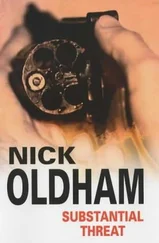Tomorrow, the Sergeant thought, he would come back here and ask about the boy, if he still needed to. He would bring a picture. He might even explain why. He thought they would understand, and surely they would respect his desire to know whether such a thing was possible before he offered it.
In the meantime, he raised his hands in surrender. ‘All right,’ he said. ‘Now I’m asking. Who took the fish?’
‘The Ukrainians,’ the dealer said, waving him away. ‘Pechorin has a brother on a factory ship. They come by every few months and buy whatever he can steal. You can sell a big tuna for hundreds of thousands of dollars in Japan. He’s not a bad man, maybe, but that’s a lot of money.’
It would turn out to be true, the Sergeant knew. He’d never prove it, and if he did there’d be nothing he could do about it. But it would be true, and that was something. Perhaps the fishermen who had been robbed would go into business with Pechorin. It might be easier all round.
That cheered him, but by the time he reached the Portmaster’s office he was frowning again. He had walked and talked, called in at a petrol station, a tabac and a greengrocer, and he had made inquiries. For his trouble, he had no more information about Madame Duclos’s missing dog — but he had been asked about three more.
Beneseffe politely expressed his pleasure at the Sergeant’s presence in his office, and then smiled much more genuinely at the idea that the fish-theft might be a profitable business opportunity.
‘I’ll put the word out,’ he said. ‘Good catch, Lester. Good timing.’
‘Been a bit twitchy, has it?’
‘Twitchy. Exactly. A lot of sharp knives on the docks. A lot of young men with large balls.’
‘Balls and knives don’t go well together.’
‘No. They do not.’
‘Speaking of twitchy, what do you hear about missing dogs?’ Beneseffe looked completely blank. ‘Never mind. Or guns? Imported guns?’
The Portmaster winced. ‘Shola.’
‘Yes.’
‘I have been thinking since it happened. There are many boats which might bring in guns. Fewer now, but still enough. And no Customs authority any more. But who, and when, and why, and how to find out. . I don’t know. I would just ask, but now they would know why. They would be ashamed.’
‘Maybe that would help.’
Beneseffe sighed. ‘Yes. If it was you, Lester, you would be ashamed and you would tell me. But not everyone is you.’
‘Ask anyway. Please.’
‘Of course.’
They drank a cup of tea on the wooden veranda in front of the office — the Sergeant, very much against his instinct, with his back to the street. When his spine itched and tingled in this position, he took comfort in the dirty reflective surface of the windows and in the knowledge that Beneseffe’s wide smile was being read all the way from the chandler’s stall to the harbour gate as a sign and an omen of peace. The British Sergeant has done his job. Say that much: say he, at least, understands obligation.
Their tea was interrupted — though it had come, in real terms, to its natural end and was now just a matter of the last of the pot — by the sound of a large engine, and then a gleeful barrage of obnoxious hooting. The Sergeant, glancing in the glass, saw the image of a Toyota Hilux 4×4 stopped at the kerb, the driver’s door opening to reveal a dark-haired elegant woman with violently orange fingernails.
‘Hey, Beneseffe! Hullo, Lester!’ Inoue said, dropping down from the driver’s seat. It was a long way for a person of less than average height, but the brief moment of free fall did nothing to ruffle her. Beneseffe waved a greeting.
‘Doctor,’ the Sergeant replied. She frowned at him.
‘We have discussed this, Lester. We have agreed that we will be informal.’
That made him smile. ‘I recall you telling me I was going to be informal, certainly.’
‘And are you so amazingly rude that you will argue with me?’ Perfect fingers spread on her chest — the nails were like spots of sherbet against her shirt — and her face took on an expression of cartoonish shock. ‘Me? A senior scientist and de facto diplomatic representative of a major power?’
‘No, ma’am.’
‘Mmph. Practise! And practise also answering your phone!’
The Sergeant belatedly took out his handset and inserted the battery. A moment later it chirruped and informed him that he had a message. Inoue rolled her eyes.
‘Sorry,’ he said.
‘Meh. I have business here. The Portmaster has impounded my equipment out of malice. Even now the finest Japanese technology is getting covered in fish scales and salt water in his wretched hovel and soon millions of dollars of sophisticated hardware will be nothing more than dust.’
Beneseffe sighed. ‘It’s not impounded,’ he said. ‘It’s just not unloaded. There’s a backlog.’
‘Piracy!’
He rummaged, produced a clipboard. ‘Sign, please.’
Inoue scribbled on it.
‘She writes obscenities in Japanese,’ Beneseffe confided woefully to the Sergeant. ‘It’s worse than dealing with your boy.’
‘He’s not my boy,’ the Sergeant said. Not yet . And: I thought you didn’t know him . But if the Portmaster was silent on that topic it was in obedience to his own obligations, and those were to be respected — at least while there was still time to look elsewhere.
Beneseffe snorted and made a gesture of resignation. The world was insane, and it was particularly vindictive towards Portmasters who were just trying to get along. He took the tea tray and retreated to his office. ‘It was nice to see you both,’ he said firmly, and shut the door.
Inoue took the Sergeant’s arm and clamped it firmly in hers. She was muscular and bony. He felt, to his confused embarrassment, what might be a fraction of one breast against his upper arm. If Inoue was conscious of this proximity, she gave no sign. ‘You are very hard to find, Lester.’
‘Sorry.’
‘Pfah.’ She smiled. There were tiny lines around her eyes, and he realised she was older than he had thought: his age, rather than ten years younger. He had assumed she was a prodigy. Well, she was: an academic powerhouse, the boy had affirmed after a sequence of nested Internet searches which apparently told him everything he wanted to know. A top-banana brain! But not an alien. Just regular brilliant. He wondered what it must be like to be regular brilliant, if she noticed how slowly everyone else thought.
He looked over at her, saw concern tighten her lips. They were a sort of silvered purple. He didn’t think she was wearing any make-up; that was just the colour of her mouth. He had never spotted it before, but he hadn’t met all that many Japanese women and didn’t generally make a habit of staring at their lips. He didn’t generally make a habit of staring at Inoue’s, actually. He wondered if she had noticed and decided that she hadn’t.
‘I would actually be grateful if you would visit with us today,’ Inoue said. ‘We have a little situation I think maybe it would be good for you to come and see. In confidence.’
‘I can come now,’ he offered, ‘if that would be good.’
‘That would be ideal.’
It would take him out of Beauville, and he would see how the world looked to someone who wasn’t the boy, which might be a good idea. He felt a flash of guilt, and put it aside. It was sensible, not wicked. He had responsibilities and it was the grown-up thing to do.
‘I was sorry about your friend,’ Inoue added abruptly. ‘Shola. I liked him. He was a rogue.’
‘Yes,’ the Sergeant said. ‘Yes, he was.’ It was like a toast. Perhaps it was the accompaniment to that brief exchange at the funeral, long delayed.
Читать дальше
Конец ознакомительного отрывка
Купить книгу











